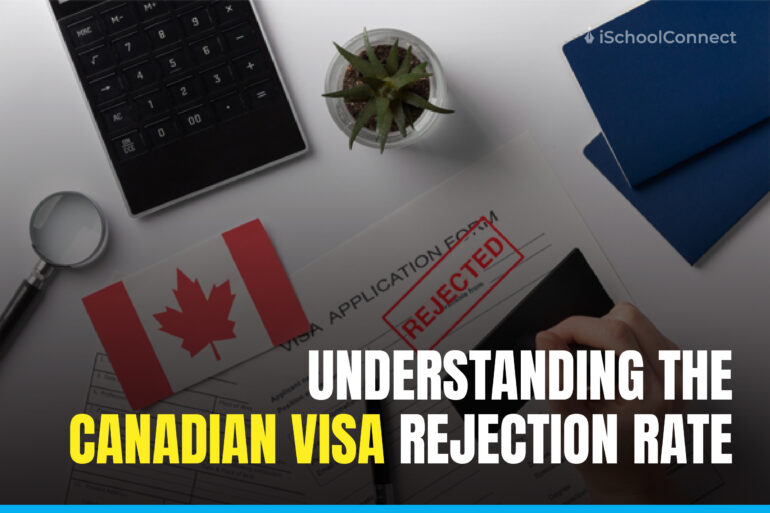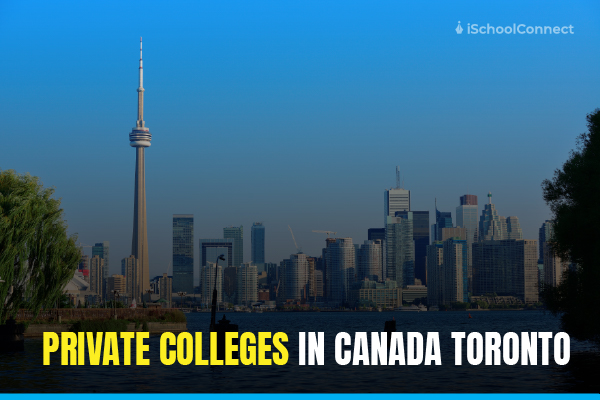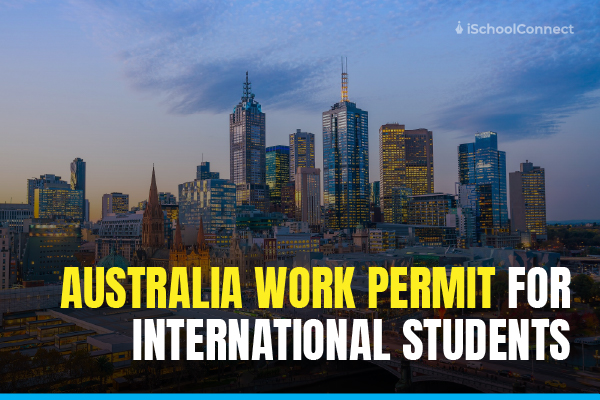Table of Contents
Navigating the Canadian visa application process can feel like traversing a maze, especially with the rising Canadian visa rejection rate in 2024. As Canada continues to attract global talent, the scrutiny on applications has intensified, leaving many hopeful travelers and students facing unexpected refusals. Understanding the common pitfalls and strategies for success is essential for anyone looking to make Canada their next destination. Whether you’re aiming for a study permit, work visa, or visitor status, this guide will illuminate the key reasons behind rejections and provide actionable tips to enhance your chances of Visa success rate for Canada.
Why Are Canadian Visas Rejected
Canadian visa applications can be rejected for various reasons, often from concerns about the applicant’s intent, financial stability, and documentation. Here are the primary reasons for the Canadian visa rejection:
- Lack of Ties to Home Country: Applicants must demonstrate strong connections to their home country, such as family, employment, or property. If an immigration officer believes an applicant lacks these ties, they may suspect that the individual will not return after their stay in Canada.
- Insufficient Financial Resources: Applicants must provide evidence of adequate funds to support themselves during their stay and to cover travel expenses. Insufficient financial documentation can lead to rejection if the officer doubts the applicant’s ability to finance their trip.
- Unclear Purpose of Visit: A vague or poorly articulated purpose for visiting Canada can raise suspicions. Applicants should provide detailed explanations and supporting documents, such as invitation letters or event details, to clarify their intentions.
- Inadequate Documentation: Missing or incorrect documentation can result in application denial. It is crucial for applicants to ensure that all required forms and supporting documents are complete and accurate.
- Previous Travel History Issues: A lack of travel history or previous visa refusals can negatively affect an application. Immigration officers may view limited travel experience as a sign that the applicant is less likely to return home after their visit.
- Misrepresentation: Providing false information or omitting essential details can lead to immediate rejection. Whether intentional or not, misrepresentation is taken seriously by immigration authorities.
- Failure to Meet Specific Regulatory Requirements: For instance, under Section 179(b) of the Immigration and Refugee Protection Regulations (IRPR), applicants must prove they will leave Canada at the end of their authorized stay. Failure to meet this requirement is a common reason for refusal.
Canada Visitor Visa Success Rate
The approval rate for Canadian visas, particularly study permits, has seen notable fluctuations in recent years. Here are the key insights based on the latest data for 2025:
- Current Approval Rate: The average study permit approval rate dropped to 51% in 2024, down from 58% in 2023, and this trend is expected to continue into 2025.
- Projected Applications for 2025: The Canadian government has set a cap of 437,000 new study permits for 2025, representing a 10% reduction from the previous year’s target of 485,000.
- Expected Approvals: If the approval rate remains at 51%, approximately 222,000 study permits are projected to be approved in 2025, significantly lower than the 436,600 approved in 2023.
- Processing Trends: The number of applications processed is expected to decline further due to stricter immigration policies and increased scrutiny of applications. In the first half of 2024, applications processed dropped by 54% compared to the same period in 2023.
- Impact of Policy Changes: New regulations have introduced tougher language and academic benchmarks for applicants, alongside increased financial proof requirements. These changes aim to prioritize high-quality students and may further affect approval rates.
- Long-term Outlook: If current trends persist, approval numbers for study permits in 2025 may resemble levels seen in 2018 and 2019, indicating a potential stabilization around mid-200,000s.
Canada Visa Refusal Reconsideration
If your Canadian visa application has been rejected, it can be disheartening, but there are steps you can take to address the situation of the Canadian Visa Rejection Rate. Here’s what to do:
Steps to Take After a Visa Rejection
- Review the Refusal Letter: Carefully read the refusal letter from Immigration, Refugees and Citizenship Canada (IRCC). This document outlines the specific reasons for your visa denial, which is crucial for understanding how to proceed.
- Identify the Reasons for Rejection: Common reasons include:
- Lack of ties to your home country.
- Insufficient financial resources.
- Incomplete or incorrect documentation.
- Unclear purpose of visit.
- Previous travel history issues or misrepresentation.
- Gather Supporting Evidence: If you believe you can address the reasons for rejection, collect additional documents that support your case. This could include proof of employment, family ties, financial statements, or a clearer explanation of your travel intentions.
- Consider an Appeal: Depending on the nature of your rejection:
- You may appeal to the Immigration Appeal Division (IAD) or request a judicial review in the Federal Court of Canada. You typically have 30 to 60 days from receiving the refusal to file an appeal.
- Consult with an immigration lawyer to assess your chances and guide you through the appeal process effectively.
- Reapply if Necessary: If appealing isn’t viable or successful, consider reapplying for the visa. Ensure that you address all previous concerns raised in your refusal and provide any new supporting documentation that strengthens your application.
- Seek Professional Assistance: Engaging an immigration consultant or lawyer can provide valuable insights into your case and help you navigate the complexities of Canadian immigration law effectively.
Canada Student Visa Rejection Reasons
Canadian study permit applications can be rejected for various reasons, reflecting the stringent criteria set by Immigration, Refugees and Citizenship Canada (IRCC). Here are the most common Canada study visa rejection reasons:
- Lack of Letter of Acceptance: Applicants must provide a letter of acceptance from a Designated Learning Institution (DLI). Without this document, applications will be denied.
- Unclear Purpose of Study: If the visa officer doubts the genuineness of your intent to study in Canada, your application may be rejected. A clear statement of purpose outlining your educational goals is essential.
- Insufficient Financial Support: Applicants must demonstrate adequate funds to cover tuition and living expenses. Failure to provide sufficient financial documentation can lead to rejection.
- Inadequate Language Proficiency: Poor scores on required English or French language tests can result in visa denial, as proficiency is crucial for academic success in Canada.
- Inconsistent Study Program Choice: If your chosen study program does not align with your previous education or career path, the visa officer may question your intent and deny your application.
- Incomplete Documentation: Missing forms or insufficient supporting documents can lead to rejection. It’s vital to ensure all required paperwork is submitted accurately.
- Travel History Issues: An incomplete or unclear travel history can raise concerns among immigration officers. A solid travel record is often viewed favorably.
- Criminal or Medical Inadmissibility: A criminal record or failing a medical examination can result in the automatic denial of a study permit.
- Strong Family Ties in Canada: Having family members in Canada may raise suspicions about your intent to return home after studies, potentially leading to rejection.
- High Volume of Applications: During peak processing times, a large number of applications may lead to more rejections due to rushed reviews by visa officers.
Canada Work Permit Rejection Reasons
- Canadian work permit applications can be rejected for a variety of reasons. Understanding these common deficiencies can help applicants prepare more effectively. Here are the primary reasons for rejection:
- Insufficient Documentation: A lack of required documents, such as proof of qualifications, work experience, or a valid job offer, often leads to refusals. Incomplete forms or missing supporting evidence can significantly weaken an application.
- Non-Genuine Job Offers: If the job offer is deemed non-genuine or lacks legitimacy, the application may be rejected. This includes offers that do not meet industry standards for salary and working conditions or those without a valid Labour Market Impact Assessment (LMIA).
- Lack of Qualifications or Experience: Applicants must possess the necessary qualifications and experience relevant to the job they are applying for. If the immigration officer believes the applicant cannot fulfill the job duties, the application may be denied.
- Insufficient Financial Resources: Applicants must demonstrate they have adequate funds to support themselves while living in Canada. If there are concerns about financial stability, applications can be rejected.
- Weak Ties to Home Country: A lack of strong ties to the applicant’s home country raises concerns about their intent to return after their work permit expires. Applicants need to show connections such as family, property, or employment in their home country.
- Previous Refusals: Any past refusals, whether for work permits or other types of visas, can negatively affect new applications. Immigration officials may view previous denials as an indication of failure to meet requirements.
- Lack of Transparency: Inconsistencies or lack of clarity in the application can lead to rejection. Immigration officers look for coherent and consistent information throughout the application process.
- Heavy Scrutiny in Specific Cases: Applications that fall under certain categories, such as spousal work permits tied to study permits, may face additional scrutiny regarding the genuineness of relationships and intentions.
- Inadmissibility Issues: Factors such as criminal records, health issues, or misrepresentation can lead to automatic refusals based on inadmissibility criteria set by Canadian immigration law.
By being aware of these common reasons for rejection, applicants can better prepare their applications and increase their chances of obtaining a Canadian work permit and reduce Canada work permit rejection rate.
Explore more: Cost of living in Canada across 5 popular Canadian cities
Read On: Post-graduate work permit in Canada | A comprehensive guide!
How to Avoid Visa Rejection in Canada
To reduce the risk of Canadian visa rejection, applicants can follow these essential tips:
- Ensure Consistency Across Documents: All information provided in your application should be consistent. Discrepancies can raise red flags for immigration officers. Organize documents logically and ensure they match in terms of details like names, dates, and addresses.
- Provide Comprehensive Documentation: Submit all required forms and supporting documents as specified by the IRCC. This includes proof of financial support, purpose of visit, and ties to your home country. Missing documents can lead to automatic rejections.
- Demonstrate Strong Ties to Home Country: Clearly establish your intent to return home after your visit. Include evidence such as employment letters, property ownership, or family ties that confirm your connection to your home country.
- Clearly State Your Purpose of Visit: Articulate the reason for your visit in detail. Whether for tourism, business, or family visits, provide supporting documents like invitation letters or event details to substantiate your claims.
- Show Sufficient Financial Resources: Clearly demonstrate that you have enough funds to cover your stay in Canada and return travel. This includes bank statements and proof of income or sponsorship if applicable.
- Maintain a Clean Travel History: A good travel history can bolster your application. Avoid overstaying on previous visas or having a record of refusals from other countries, as this can negatively impact your Canadian visa application.
- Avoid Misrepresentation: Ensure that all information provided is accurate and truthful. Misrepresentation, whether intentional or not, can lead to immediate rejection and future inadmissibility.
- Pay Attention to Details: Small errors can have significant consequences. Double-check spelling, dates, and other details in your application forms to avoid unnecessary complications.
- Seek Professional Guidance: If unsure about any aspect of the application process, consider consulting with an immigration lawyer or consultant who can provide expert advice tailored to your situation.
| Country-wise Visa Details | |
| How to get a USA student visa 2024 | Netherlands Student Visa Requirements 2024 |
| A detailed 5-step guide to get the UK student visa | Australia study visa requirements |
Summary
Navigating the Canadian visa process can be challenging, with the rising Canadian visa rejection rate in 2024 due to stricter policies and increased scrutiny. Common reasons for Canadian visa rejection include insufficient financial resources, lack of ties to the home country, unclear purpose of visit, inadequate documentation, and previous travel issues. Study and work permits face additional challenges, such as mismatched qualifications, unclear study plans, or non-genuine job offers. To improve approval chances, applicants should provide complete, consistent documentation, demonstrate strong ties to their home country, and avoid misrepresentation. Seeking professional assistance and addressing specific rejection reasons can significantly enhance the likelihood of success.
FAQs
Ques 1: What are the most common reasons for Canadian visa rejection?
Answer 1: Common reasons include inadequate financial resources, lack of ties to the home country, incomplete documentation, obscure purpose of visit, and past visa refusals. Addressing these issues proactively can improve your chances of approval.
Ques 2: How can I strengthen my Canadian visa application?
Answer 2: You can strengthen your application by ensuring consistent and accurate documentation, demonstrating strong ties to your home country, providing a clear purpose for your visit, and showing sufficient financial resources to support your stay.
Ques 3: What should I do if my Canadian visa application is rejected?
Answer 3: If rejected, review the refusal letter to understand the reasons, address those issues, gather additional supporting documents, and consider reapplying or appealing the decision with the guidance of an immigration consultant or lawyer.






